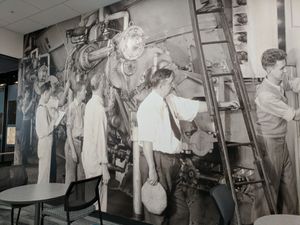I am looking forward to attending the second M-Libraries Conference in Vancouver in June. The programme has now appeared and the conference is open for registration.
Although mobile communications raise specific questions, more generally it represents the further diffusion of computational and networking capacity through our lives. I have quoted from the piece I wrote for the proceedings of the first conference in these pages several times already. Here is the abstract ….
Mobile communication has been more widely adopted more quickly than any other technology ever (Castells, et al., 2007). It represents a diffusion of communications and computational capacity into a growing part of our research, learning and social activities. It has resonated with emerging youth behavior, providing support for distinctive patterns of social interaction and group formation, information use and personal expression.
Diffuse networking changes how we coordinate our resources to achieve goals. For example, our use of time and space changes. Timeshifting is routine as students may listen to or watch lectures in the gym or on the train. The use of space to support ad hoc rendezvous and social learning is becoming more important.
As networking spreads, we have multiple connection points which offer different grades of experience (the desktop, cell phone, xBox or Wii, GPS system, smartphone, ultra-portable notebook, and so on). While these converge in various ways, they are also optimized for different purposes. A natural accompaniment of this mesh of connection points is a move of many services to the cloud, available on the network across these multiple devices and environments. This means that an exclusive focus on the institutional Web site as the primary delivery mechanism and the browser as the primary consumption environment is increasingly partial.
Students are results-oriented and value convenience. This emphasis coupled with the design constraints on some devices promotes a need to get to relevance quickly. Socialization, personalization and location awareness become very important.
Libraries have been working to develop network-ready services. Mobile communication intensifies this activity and adds new challenges as they look at what it means to be mobile-ready. This has organizational implications as a shift of emphasis towards workflow integration around the learner or researcher creates new relationships with other service organizations on campus. It also has implications for how space is used, for library skills, and for how collections are developed. We can see the impact of mobile communication on services in two ways. First, services may be made mobile-ready, as with special mobile interfaces for library services, alerting services, and so on. Second, mobilization continues the restructuring of services, organizations and attention that networking has brought about. Think here of how to socialize and personalize services; how to adapt to collection and service use which spans personal, institutional, and cloud environments; how to position and promote the library ‘brand’ as services become atomized and less ‘visible’ on the network; and more complex questions about what best to do locally and what to source with collaborative arrangements or third parties. [Always on: libraries in a world of permanent connectivity]



